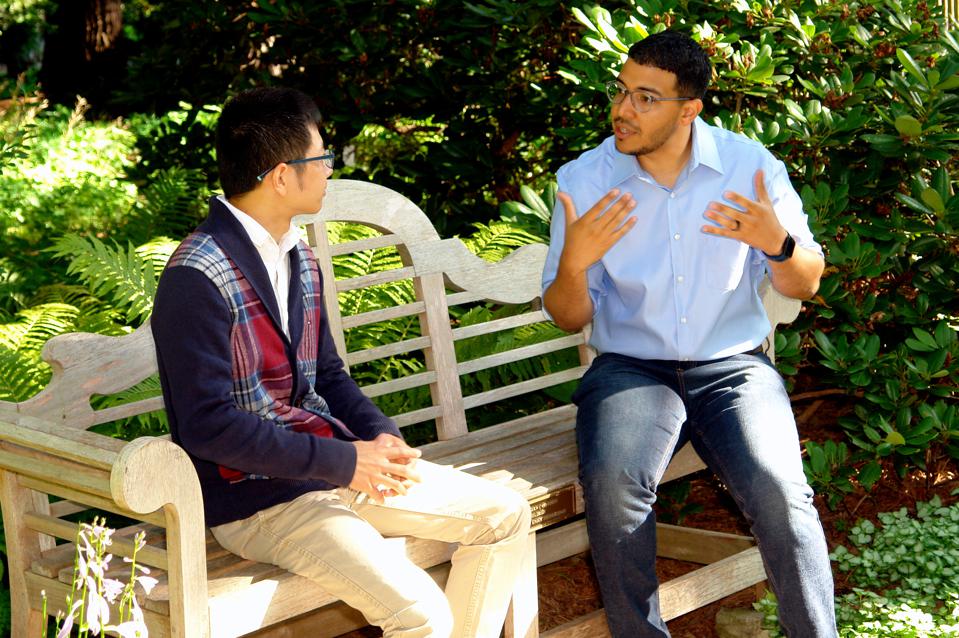Posted on February 21, 2021 by Amanda Cerreto
This article originally appeared in Forbes by Andrew Wight. It features Roger Figueroa, an alumnus of HCaP’s MS in Health and Kinesiology program.
Scientist Roger Figueroa grew up overweight in Puerto Rico which, in part, drove him to spend years developing a multi-faceted approach to helping low income communities affected by obesity and food insecurity in New York State and Puerto Rico.
 Figueroa, now an Assistant Professor Cornell University says his work aims to address food insecurity, which is a lack of both quantity and quality of foods, for example, looking at the factors which lead to food access and diet quality.
Figueroa, now an Assistant Professor Cornell University says his work aims to address food insecurity, which is a lack of both quantity and quality of foods, for example, looking at the factors which lead to food access and diet quality.
“Working with the Puerto Rican population is of high priority for me, as a member of this community, and an incredible opportunity to make a difference to promote the wellbeing of Puerto Ricans (both on the island and diaspora),” he said, adding that Figueroa says his work is “problem-oriented” rather than restricted to one discipline, which means that he is able to address problems that need to be prioritized in particular communities and find the collaborators, concepts and methods that are the best fit to solve those specific problems.
“I have conducted research within early childhood education settings and family contexts to promote energy balance behaviors among children and youth,” he said, “I am also interested in eliminating health disparities through community-engaged research and at present, my main project is prioritizing populations with low income affected by food insecurity in New York State and Puerto Rico.”
COVID-19 Crisis
Figueroa says his team is collaborating with key stakeholders in New York City to better understand food environments as these relate to food access and diet quality, as well as how Black and Latinx communities are navigating food access during Covid-19.
“This latest project is particularly imperative, given how Covid-19 has exacerbated inequities for Black and Latinx in the US and their challenges,” he said.
For instance, Figueroa says, the federal response to help maximize food access among Puerto Rican parents and school-aged children during the public health emergency took almost a year to be approved.
Figueroa says continuing on projects during 2020 has been extremely challenging for a variety of reasons, including Covid-19.
 “But if we are successful in navigating the many challenges we are facing (globally and locally), I am hopeful that our work in the island can help shape future initiatives that alleviate food insecurity and promote community health in Puerto Rico,” he said.
“But if we are successful in navigating the many challenges we are facing (globally and locally), I am hopeful that our work in the island can help shape future initiatives that alleviate food insecurity and promote community health in Puerto Rico,” he said.
The complicated relationship between the US and Puerto Rico is one of many challenges in efforts to alleviate food insecurity in Puerto Rico. Additional behavioral, cultural, and economic factors do play a role, but there are certainly priorities at the environmental and policy level that should be focal point at present.
Humble Roots
Figueroa said that growing up overweight himself, in a low-to-middle income household, shaped his current work.
“As a Dominican child growing up in Puerto Rico, there was never a lack of political, sociocultural, stigma-related, and racial factors shaping my growth,” he said.
He said that although there were significant barriers to his educational attainment, he was fortunate to have a strong support system to draw on.
“This was largely the result of watching my older sister to be the first member of my family to successfully navigate graduate school in the United States,” he said, “With her help, I began my journey by exploring the application process to graduate school after completing my bachelor's degree in physical education in Puerto Rico.”
In 2010, Figueroa decided to move to the US from Puerto Rico for grad school and was accepted into the Kinesiology and Health Master's Program at the University of Texas at San Antonio (UTSA), which gave him the opportunity to work in community-based interventions for obesity prevention in Hispanic/Latinx families.
“These personal and educational experiences helped shape my curiosity for better understanding childhood obesity prevention from multiple angles and perspectives,” he said.
He would go on to earn his masters of public health and a PhD at the University of Illinois and continue to shape his interest in combating obesity.
Metabolic disorders have played a key role in the Covid-19 crisis in Latin America, particularly in Mexico.
Casey Means, a medical doctor and Chief Medical Officer of metabolic health company Levels , said reports from the Mexican government show a wide range of pre-existing conditions in those dying from Covid-19: 44% reported having hypertension, 43.2% diabetes and 40% obesity.

